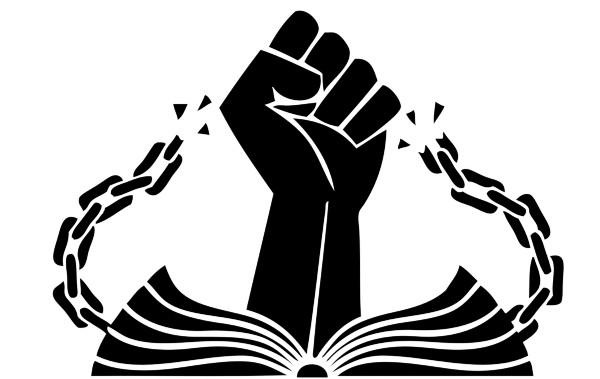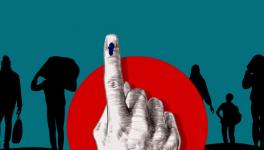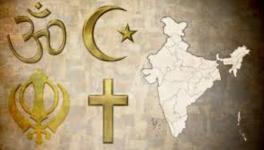My Way or a Road-Block: Politicians Who Revel in Breaking Laws

Image for representational use only.Image Courtesy : Boing Boing
While the rise of fascism is perhaps overstated and insufficient to explain the current moment, it is necessary to point to one troubling commonality: the willingness of the new breed of global political leaders to not only break the law but to revel in breaking it. They show no remorse in their impunity.
In the hour long speech following the acquittal vote by the United States Senate, it was not Trump’s acquittal which ought to have concerned citizens, it is the way he talked about the impeachment process—enshrined in the United States Constitution—as a tool Democrats used “to try to overthrow the government” and expressed no remorse about his actions that prompted the Democrats to begin impeachment proceedings in the first place.
Perhaps most significantly, the fact that the president felt emboldened to deliver such a speech—filled with the rhetoric of vengeful pride—was a bad omen. So if anyone was holding out hope that going through the impeachment process and receiving a vote for his removal from office would chasten Trump, his victory lap speech should resolve any doubt: it did not. In fact, the opposite appeared to be the case. Not only did Trump felt emboldened, he expressed being constrained by the rule of law and seemed to suggest that he will make breaking all such laws a theme of his upcoming reelection campaign.
Trump is not alone
The President of Philippines, Rodrigo Duterte, has bragged of riding around the streets on his motorcycle shooting people whom he suspected of being gang members and criminals. As a president he has, in effect, turned the Filipino police force into a death squad, empowering them to murder people they believe to be involved in drug crimes. Unsurprisingly, this unfettered license has led to the murders of left-leaning political opponents, union leaders, and teachers. Even as he applauds the killing of drug suspects, Duterte jokes about taking illegal drugs to keep himself awake at meetings. Opponents are imprisoned, judges are fired, and journalists are imprisoned on made-up charges and in doing so, Duterte announces these acts to the public with a mix of humour and glee.
Israeli Prime Minister Benjamin Netanyahu has lashed out vocally and publicly against “outside interests” in speech after speech, after he was charged with several cases of corruption. In one case, Netanyahu is suspected of offering Arnon Mozes, the publisher of a popular Israeli tabloid, a wide range of improper benefits in exchange for positive coverage. In the other, dubbed “Case 1000,” he is accused of using his position to help several prominent friends, including Hollywood producer Arnon Milchan and Australian businessman James Packer, in exchange for Cuban cigars, French champagne, and other gifts worth thousands of dollars. Defiant Netanyahu went on the attack against Avichai Mandelblit, Israel’s attorney general, for plotting against him and demanded that the “investigators be investigated” and that the “tainted investigation” was tailor-made to find him guilty.
Hungary’s right-wing populist president, Viktor Orban, has come up with a catchy phrase for his way of subverting the rule of law: Christian democracy. In a speech in 2014, he first described the failures of liberalism as conceding too much to minorities; instead he proposed Christian democracy where “protecting Christian freedom was sacrosanct.” Orban’s interpretation of Christian values (which hardly square with love-thy-neighbour), he said, “supports the traditional family model of one man and one woman, keeps anti-Semitism at bay, and gives a chance for economic growth.” This came at a time when Hungary has seen the highest rise of violence against Jews, Roma, migrants, and gays as Orban’s government ignores all laws that shield citizens from such violence. Hungary has since been called the most xenophobic state in the European Union by Human Rights Watch.
The rule of law, democracy, and good governance are interrelated and it is almost impossible to point out where one stops and the other begins. India has been trying hard since independence to establish a law based society where a massive billion citizens can enjoy rights and freedoms albeit a long history of caste and religious discriminations. It is hard to imagine a democratic state, with more diversity, and to establish a postcolonial legal system has been successful only spasmodically. But, in mere six years, the country has witnessed an utter breakdown of the rule of law.
Like Orban, Modi and his men have called this lawless path as a way away from minority appeasement and a shift from identity-based politics to development-oriented politics, a Hindu majoritarianism based on day-to-day retail violence against minorities. Couple that with a concurrent attack on checks and balances fundamental to a functional democracy. For example, India’s Foreign Contribution Regulation Act (FRCA) was amended in 2010 and placed restrictions on NGOs receiving foreign funding. Since 2014, the BJP government is reported to have cancelled around 20,000 NGOs’ licences for allegedly violating provisions of the FRCA in a move that has been widely condemned by United Nations rights experts who have cited that the most often targeted NGOs are those who work for civil liberties, minority rights, and free speech. As in other countries, the government crackdown on NGOs in India points to a worrying trend affecting wider civil society.
Every policy decision—weakening of RTI, annexation of Kashmir, an impetuous Rafale deal, the envisioning of NRC—shows autarchic decision-making by Modi (and his wingman, Amit Shah) where it has not been the rule of law or democratic deliberation that has mattered.
Modi’s speeches and tweets are replete with insults and ridicule of pre-existing laws and policies, of previous prime ministers (Jawaharlal Nehru, Rajiv Gandhi, and Manmohan Singh) who advocated for said laws, and social activists and intellectuals who, now marked as “anti-nationals”, support such laws.
Trump’s post-impeachment speech drew rebuke and shock globally but was hardly unique. These leaders, in their rhetoric of ‘us versus them’ share a characteristic: they flout laws and unashamedly do so. It is a politics of pure blame where law and rules have to be violated to achieve an exclusionist perception of national identity.
The author teaches at the Department of Communication Studies, State University of New York, Plattsburgh. The views are personal.
Get the latest reports & analysis with people's perspective on Protests, movements & deep analytical videos, discussions of the current affairs in your Telegram app. Subscribe to NewsClick's Telegram channel & get Real-Time updates on stories, as they get published on our website.
























